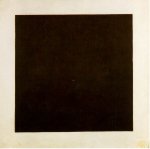ExploderWizard
Hero
I'd say that as time has gone on, we've become much more systematic in our approach to game design. There's a lot less "throw things at the wall and see what sticks" approach to game design.
So you haven't been been following the 5E playtest then?
I'm sorry, but the idea that there is no advancement in game design basically means that there can never be any improvement. That every RPG ever made is the epitome of good design.
Unless there is measurement that matters more than how much fun one has playing something and the eagerness to play a given game again, then no there has been no objective advancement to game design.
Now, I'm curious: How does AD&D promote exploration?
The rules of the game promote exploration. XP is rewarded largely for treasure. One must explore the environment to locate treasure. Combat (especially at low levels) is very lethal. Thus rather than fighting too much to acquire said treasure, perhaps exploring somewhere else where there is more to gain for less risk is a more winning strategy. Thus the risk vs reward mechanism pushes players to explore to keep looking for the less costly (if not free) lunch so to speak.
this is where i think you'll find many people disagree. Sure there is an appetite for clarity on these individual points among some gamers, but the whole 'rulings over rules' trend you see is a response to too much of that in games. These days i know a lot of players and gms who prefer the vagueness here over having yet another rule to remember because of a minor point mentioned in a spell. Their attitude is just let the GM handle it. I dont think either approach is bad design. These ae just different approaches to design. Personally, i am fine in either camp myself. Both types of games are fun to me. But there is definitely something to be said for games that leave a lot of the details open to gm interpretation.
Exactly. Nothing can be objectively better while under the subjective scrutiny of fun.
What Bedrock is trying to say, I think, is that the tools of art evolve (paint brush, paints, musical instruments etc) but not the brush stroke.
This is very applicable here.

